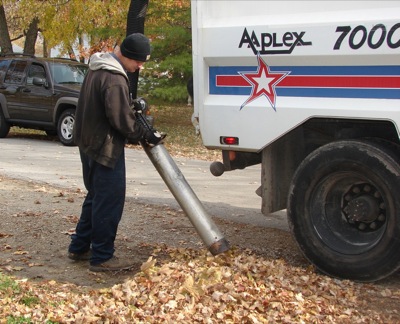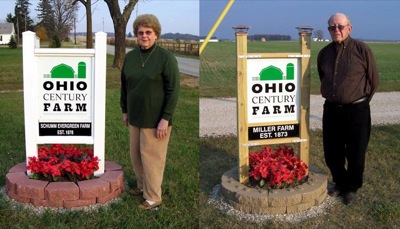Tuesday, November 4th, 2008
State may regulate all farms
By Nancy Allen
There may be major changes coming from the Ohio Department of Agriculture, including possibly regulating all farms, though no details are yet available.
Lake Development Corporation (LDC) member Greg Schumm said the news came out of an Oct. 21 meeting he and other local lake officials attended in Columbus.
Schumm said there was discussion that all farming operations may be regulated to accomplish water quality improvements. Currently only large livestock farms with a high number of animals must obtain state permits, follow strict regulations on operations/manure management and be open to inspections.
Also at the meeting in Columbus were Ohio EPA and Department of Agriculture officials, State Rep. Jim Zehringer, R-Fort Recovery, and Sean Logan, director of the Ohio Department of Natural Resources.
"The thing that came out in discussions from Logan and Zehringer is that the (water quality) violations are from small operations and some more than one time," Schumm said during an LDC meeting on Monday. "Logan kept saying we would hear more and more from them, we just have to be patient."
When the conversation turned to possibly regulating all farms, it brought comments from Zehringer, who is a farmer, Schumm told LDC members.
"He said he follows all regulations and is doing everything right, why should he have to be checked every three years?" Schumm reported. "But we all have to be checked for things like accreditation and others."
The Columbus meeting was requested by the LDC to determine what the state's next step may be after the Grand Lake/Wabash Watershed Alliance unveiled its watershed action plan and gave local officials assignments to accomplish water quality improvements.
The Grand Lake/Wabash Watershed has been deemed one of the most degraded in the state based on water quality testing done in recent years by the Ohio EPA. Most of the degradation comes from nutrient and sediment-laden runoff from farmland, the largest land use in the watershed.
State officials at the meeting focused on keeping sediment and nutrients from coming into the lake through conservation practices on the land. This needs to be done before concentrating on dredging, Schumm said.
LDC President Jim Dabbelt agreed, saying there would be no change if small farms are not regulated, but added that dredging shouldn't be ignored.


